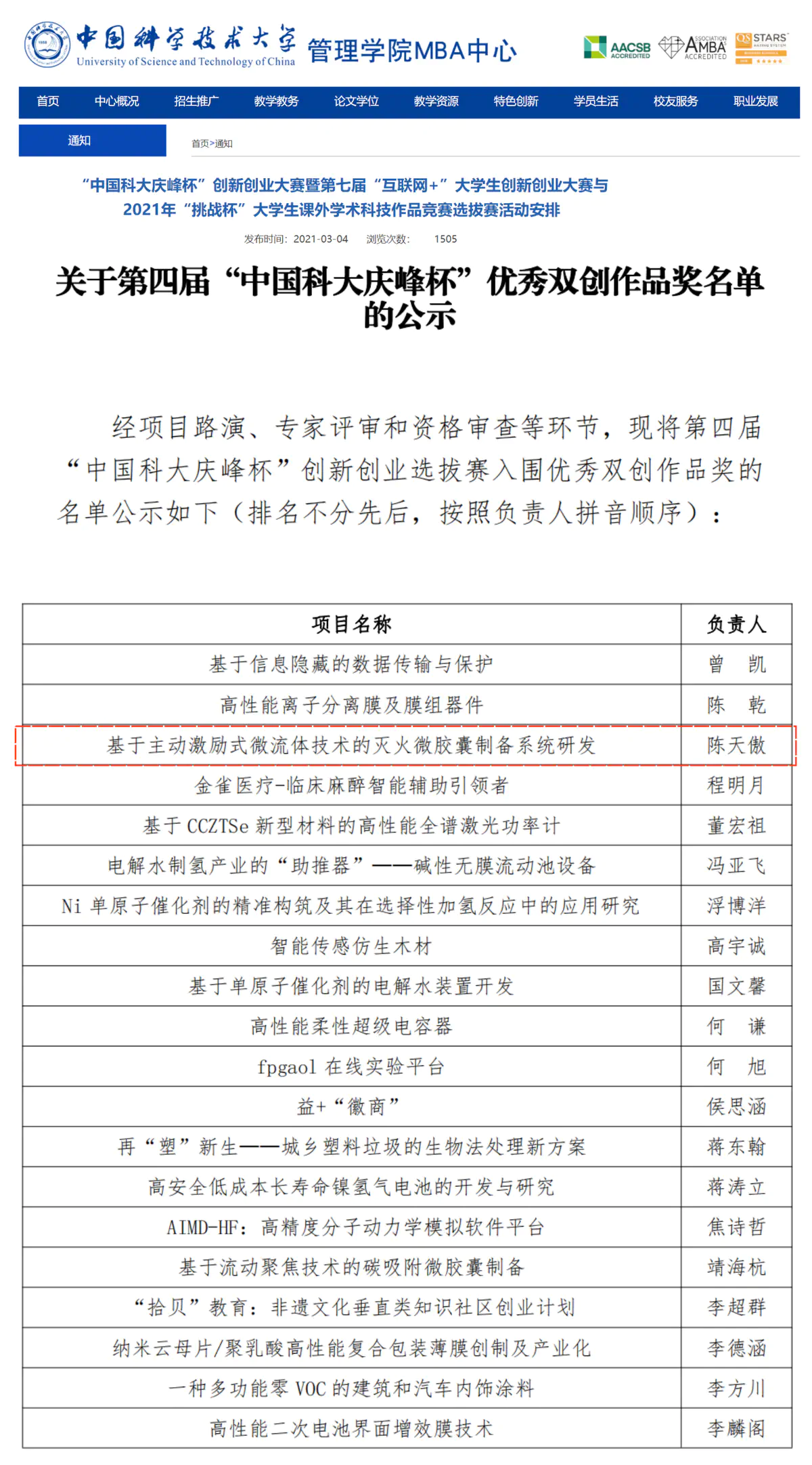Honorable Mention Prize in the Qingfeng Cup
Achieved good results in the Innovation and Entrepreneurship Competition of University of Science and Technology of China
 Image credit: USTC MBA
Image credit: USTC MBAOverview
Under the guidance of Zhu Zhiqiang (Special associate researcher) and Huang Fangsheng (Special associate researcher), Chen Tianao and his teammates Ding Dang, Yin Yanbin, Zhu Yuewei and Li Xingxiang won the Honorable Mention Prize in Qingfeng Cup for the development of fire-extinguishing microcapsule manufacturing system.
Progress Report
At present, lithium-ion batteries are still not intrinsically safe. In EVs (electric vehicles) and ESS (energy storage systems), hundreds of batteries are usually used in series and parallel in order to meet the requirements of operating voltage and power, and they face problems of extrusion, breakdown, temperature shock, overcharge and short circuit under long time use. Once the battery is under such conditions, the battery may generate a large amount of heat, which triggers a chain reaction of internal electrolyte and electrode materials (leading to electrolyte and positive electrode decomposition), which in turn leads to thermal runaway and may develop into a large-scale explosion and fire accident.
The use of fire-extinguishing agents to suppress the lithium battery deflagration is a good choice, but the question is how to use them. Fire-fighting facilities will increase the weight, volume and complexity of the energy storage system, which is not absolutely reliable in the case of thermal runaway. Therefore, the selection of suitable fire-extinguishing agents and the design of new fire-extinguishing devices are important research areas for the large-scale application of lithium-ion batteries.
To address these issues, our team encapsulated perflourohexanone through actively excited microfluidic technology, which not only isolates it from the external environment to protect and store the fire-extinguishing agent, but when the ambient temperature rises (~80°C), perflourohexanone, the core material, absorbs heat and evaporates, rising through the outer walls of the microcapsules, thereby releasing and inhibiting further chain reactions and eliminating the fire before it is too late.
In the pre-exploration, we have not only verified that the fireproof microcapsule developed by our team can remain stable in the electrolyte (30 days), but have also conducted experiments on small batteries (aluminum-plastic film batteries, 3.2V-40Ah) and achieved good results.